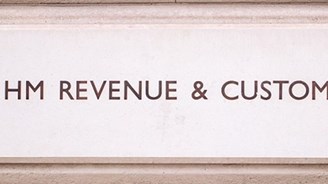HMRC can’t always have a penalty

A recent case illustrates a long-standing principle in the penalty rules, particularly in the area of discreet technical enquiries - that the taxpayer must have committed an offence for a penalty to be imposed on them. If it is someone else's fault, the likelihood is that there can be no penalty.
HMRC have never liked this defence. They may argue that the taxpayer signed the return and so it must be their fault. However, the more technical the point at issue, the less chance that the taxpayer has any idea what they are signing.
The recent case concerned a penalty imposed on the taxpayer under Sch 24 FA 2007 of £14,365.56 for incorrectly claimed relief against gains.
The taxpayer had received loan notes as part of the consideration for the sale of a business and, in 2008, disposed of the loan notes, creating a gain. The agent thought that Entrepreneurs' Relief would not be available but that UK holiday letting properties could be used to mitigate a CGT charge via rollover relief.
The CGT pages of the return for 2008/09 show at box 19 gains in the year of £1,261,387. Box 20 was crossed to indicate that the appellant was making a claim for relief but the accompanying computation only showed the taxable gain after deduction of relief but without identifying the amount of relief claimed.
After an enquiry, HMRC stated that rollover relief was not available because the loan notes were not qualifying assets (which is correct).
Para 18 Sch 24 states:
The tribunal was satisfied that the effect of para 18 is to remove the liability of a taxpayer to a penalty where:
In my view, if a taxpayer reasonably relies on a reputable accountant for advice in relation to the content of his tax return then he will not be liable to a penalty under Schedule 24.
I am fortified in these conclusions in relation to paragraph 18 by the content of the HMRC Compliance Handbook at CH84540 which states in relation to paragraph 18 as follows:
'A person cannot simply appoint an agent and deny responsibility for their tax affairs. The person still has a duty to take reasonable care, within their ability and competence, to make sure that what they are signing for is correct. The person has to show that they took reasonable care, within their ability and competence, to avoid default by their agent. This will include
- making sure that they give the agent all relevant information with which to work...
- implementing the professional advice received, and not neglecting some vital step
- checking the agent's work to the extent that the person is able to do so. For example, an ordinary person cannot be expected to challenge specialist professional advice on a complex legal point. But they ought to be able to recognise the complete absence of a major transaction.
A person saying and meaning 'I leave it all to my agent' is hardly taking care, let alone reasonable care, over their obligations or the work of their agent.
... The person has an obligation to choose an adviser who is trained and competent for the task in hand...
The benchmark is a person who goes to an apparently competent professional adviser
- gives the adviser a full and accurate set of facts
- checks the adviser's work or advice to the best of their ability and competence and
- adopts it.
The person will then have taken reasonable care to avoid inaccuracy on the part of themselves and their agent.'
I agree with the general thrust of the guidance given in the HMRC Compliance Handbook. In particular, that a taxpayer cannot simply leave everything to his agent. A taxpayer must certainly satisfy himself that the agent has not made any obvious error. That might involve the taxpayer seeking to understand the basis upon which an entry on his return has been made by the agent. However in matters that would not be straightforward to a reasonable taxpayer and where advice from an agent has been sought which is ostensibly within the agent's area of competence, the taxpayer is entitled to rely upon that advice. At the heart of this issue is the extent to which a taxpayer is required to satisfy himself that the advice he has received from a professional adviser is correct. The answer to that will depend on the particular circumstances of the case.
Although there was carelessness by the agent, the taxpayer did take reasonable care:
'He instructed an ostensibly reputable firm of accountants who had acted as his accountants for many years. The matters on which he instructed them were ostensibly within their expertise. He had no reason to doubt their competence or their advice that relief was available. They were in possession of all relevant facts. In the circumstances of this case the appellant was entitled to rely on (that)advice without himself consulting the legislation or any guidance offered by HMRC.'
The appeal was allowed.
Clearly, this is not an excuse that can be used all the time but keep it in your locker for a rainy day!



